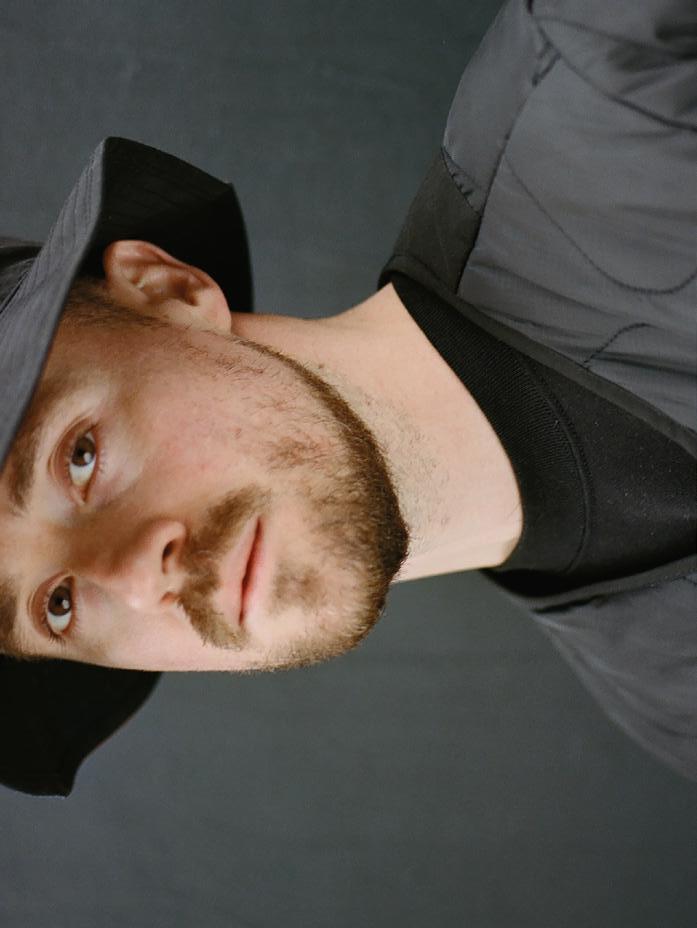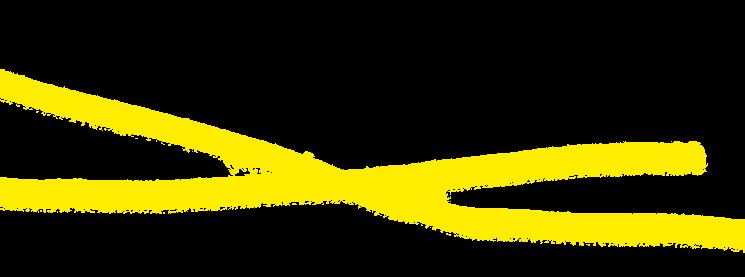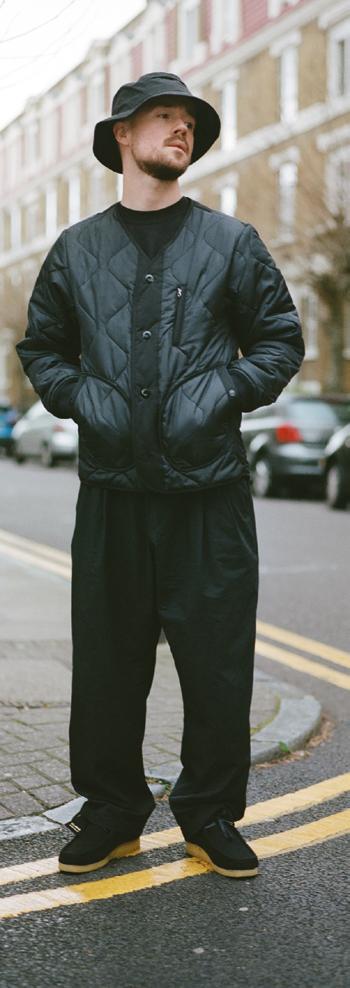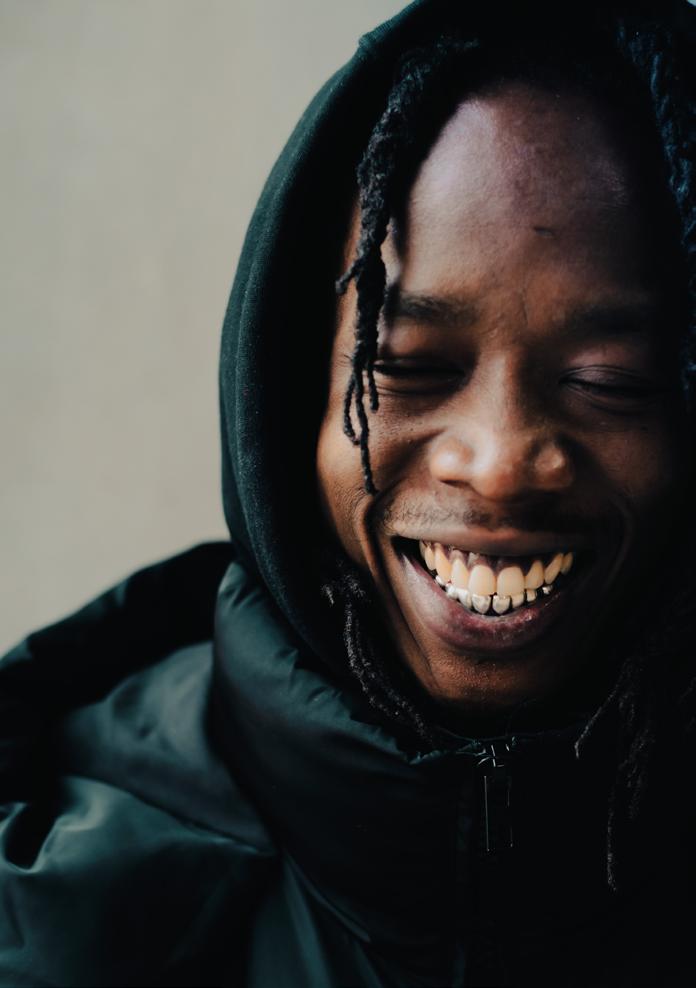
7 minute read
MAVERICK SABRE
Mav: I suppose I just looked to record the records, I never intended to make an isolation record publicly. There’s probably 20 other songs that capture my feelings and emotions a bit more directly that never made the record. But in essence, the album wouldn’t wouldn’t have been made if it wasn’t for the lockdown situation over the last two and a half years.
It was initially an EP and we were going to put it out at the end of 2020 alongside another EP. Then as time went on, things in the world developed and stuff in my life also grew as well, we continued to move on with the record in the same vein and it just grew a bit more. It’s weird, it is an isolation record and it isn’t at the same time, but it definitely wouldn’t have been created or feel the way it does without it being in the time that it was made. I wanted it sonically to feel like a step away from everything that I was feeling. I think maybe that’s why something pure came out.
Advertisement

Tim: Mm interesting, to go off that point, you wanted it to feel like it felt like it was a step away from everything you’ve been feeling. How does this differ from the processes of your last album? How does this album sonically differ from your previous work?
Mav: Yeah, I think the process is quite different on this record because I never set out for it to be an album. With the last three albums, there was a point where I was like, “Oh, this is an album now.” Whereas this was strange for me because it started as an EP, it was only when I got to track 12 on the record where I was like “this actually sums up the album.” The process was definitely quite different, this was more kind of step by step, stage by stage record than the last three albums.
Tim: You said track 12, Get down. Let’s just let’s just unpack that record because it’s a sound I wouldn’t associate you with, but I’m enjoying it. It’s my favorite track on the record. How did that come about? What was the session like?
Mav: That song actually has loads of different stages and I’m glad you said it was a recording you wouldn’t expect me to do. I want to constantly do that. I feel like it’s a dangerous place to get stuck in as an artist where people expect a certain song off you. Although I think it’s great to have expectations of the artists and musicians we listen to, I also want to make music that I love. I want that to develop and change with every record that I make and never be stagnant. That record itself was that that was actually a beat. It was like a four to the floor, house, funky kind of record. To be very honest, the initial idea of the record was for a beat tape I was looking to make and put out.
It had no cords, it just had broken, pitched down verse that I had spat and I had made the sample & chopped it up. Then I played it to Zack, the producer, and he just played a light baseline over it and I was like, ‘you make it sound a bit disco and funky’ and we just developed on that. I had been working with Nile Rodgers on a couple of different things before this but when I played it to him I was mad nervous because I was like ‘this is the king of pocket and this is a bit wonky.’ He loved it though and said I’d like to be involved in it, he then laid down some guitar licks on it and that was the finishing touch of the record, it was kind of built in different stages.
Tim: Love that man, honestly. I must ask as well, what’s your favourite record of the album?
Mav: My favourite record is probably Like This. It brings me back to the records I made when I was 17. It’s just me spitting and on this simple beat, but at the moment it’s probably the record that I’m playing the most.
Tim: Okay, that’s interesting because I wanted to talk to you about that record specifically, I know you used to rap more back in the day but I wanted to ask what inspired this record? As I listened to this record more and more I could feel that sense of a controlled angst in not only what you were saying but also the way you were spitting, where were you when you wrote that record?
Mav: I think out of all the songs on the album, that that record was a lockdown record. It was just me in the middle of everything, kind of removing myself from the world thinking what’s my place in the world? What do I even think about the world at the moment? It was written in about an hour and it was just how I felt that time, a bit tentative, a bit on the edge. I think we’ve all had those moments in the last two and a half years where it feels that there’s a lot of pressure on our heads. We’re not sure if the walls are crumbling in or if it’s our own walls in our head crumbling in. That track was just kind of me just releasing me. It was definitely a poignant record of how I felt at the time.
Tim: The Maverick Sabre that started this record, what would he say to the Maverick Sabre that finished this record? I know you can go through a process of reflection of who you were and who you are now when you finish an album, so I ask, who are you now and what would you say to the person you were?
Mav: I think this record helped me learn a lot to be honest. I think even right to the end of his finishing his album, I was in kind of a lot of deep conversations with myself, and I wasn’t even sure I wanted to put the record out. I wasn’t sure it sounded like an album or what I wanted to do. If this was me having a conversation with a person starting the record, not knowing he was starting the record, I would say let things be the moment that they are. I think at times I got too worked up about who and what I was and I just learnt that this, right now, making music, everything is just part of the journey.
I think another thing I have realised is to always keep on reconnecting with a young version of myself. Before we start thinking about releases, success, shows and whatever comes with releasing music, we all make music for the love of it and to throw paint against the wall. That’s the big thing. That’s my passion, you know, is to throw paint, experiment and to figure out what gets me as a fan of my
Tim: Wow, I love that answer, thank you. What was the idea behind the artwork?
Mav: I can’t even take any credit for that, it was achieved by a friend of mine, Rashid Babiker, who did the artwork for my last album.
I initially had a photo that my partner actually took with me, she actually took it at a video shoot and we were going to use that as the album cover. It was this kinda lofi, weird, warm photo with this red hue. I sent it to Rashid and said, this is the artwork I want you to create something around it. He came back to me and was like, “I’ve got an idea, can you let me run with it? And if you don’t like you, don’t like it” and I was like sweet. So he came up to my house and he took like angled photos of me, I just had a blank wall and he took maybe like 15, 16 photos of my head moving in different angles. Then 5 days later he sent me back the artwork, he was like “this is what I have taken from listening to the record, this is what I had to my head” and I was, “I love it.” In a weird way. It is connected with everything, and it was like the cherry on top of everything.
Tim: Three features, well two main features in terms of Demae and Saha Keable and Nile Rodgers on guitar. How did they come about?
Mav: Demae is a great singer I have known since her days in Hawkhouse and we were signed around the same time. I have always been a fan and we’ve been friends for a while so we just re-connected on this new record.
Then Sasha Keable was another friend of mine that I’ve known for a couple of years and we’ve just had all kinds of similar circumstances, we’ve been fans of each other’s music, we’ve kind of walk together loosely all over the years in the industry, and she was the the first person that came to mind when I felt like I needed someone on Middle of Eden.
Nile I’ve met a couple of times and worked with him on different things, again I played him the record, he loved it and it kind of all kind of all came together naturally.
Tim: One thing I really wanted you to open up on was Hip Hop and the importance it has on your music. The Hip Hop thread in this album is so strong for me, even in tracks like Walk These Days where you are basically rapping with a melody, what does Hip Hop mean to you?
Mav: Hip Hop is the reason I’m making music, to be honest. It’s the reason that I was introduced to so many different artists that have become my favourite, from jazz musicians to soul singers I only found out when I started producing and sampling. For me, it’s like the most beautiful genre in the world in the sense of what it encompasses and how






